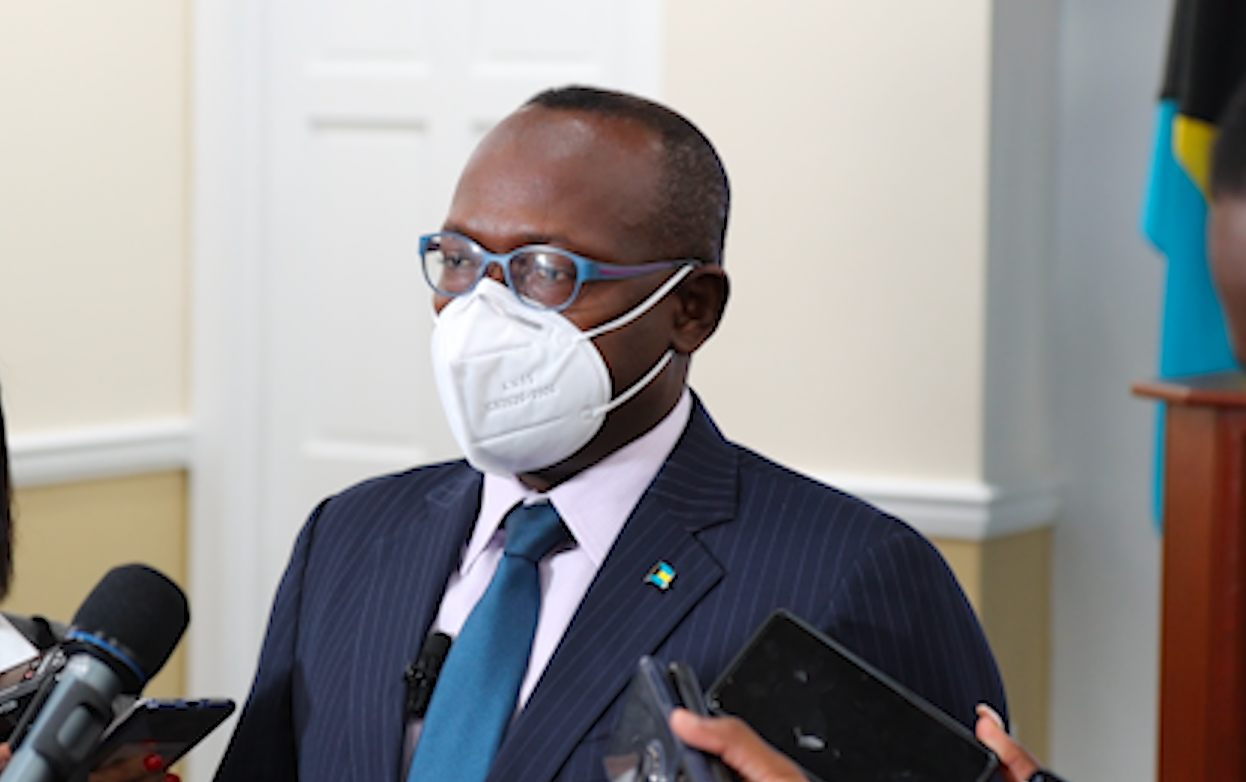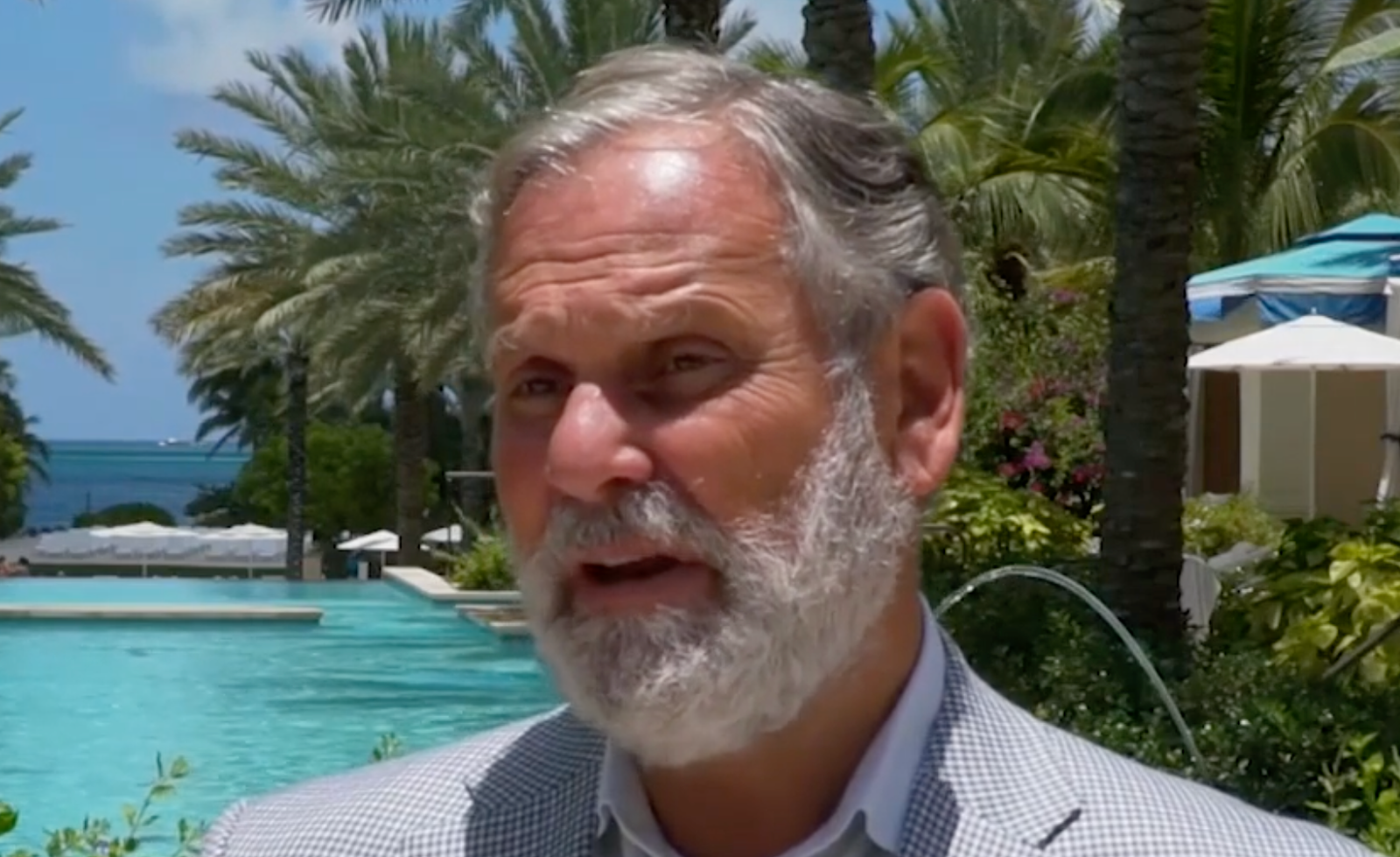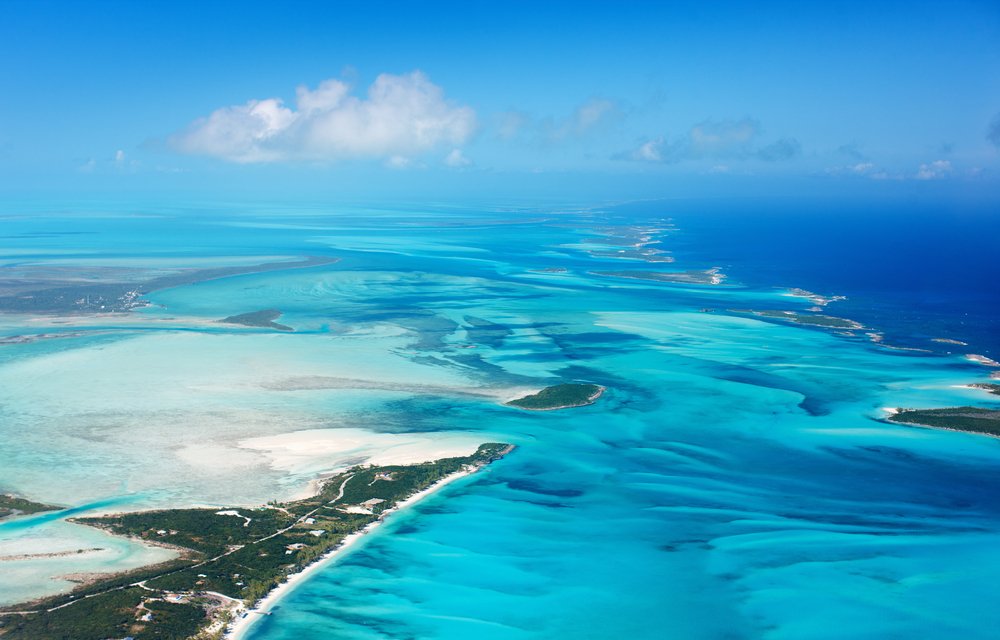NASSAU, BAHAMAS — Deputy Prime Minister Chester Cooper said while The Bahamas’ CDC travel rating due to the increasing number of coronavirus cases is concerning, the majority of islands remain COVID-free and the destination remains a “relatively safe place to travel”.
“Well, there’s always a concern when we see an increasing number of COVID cases,” Cooper told the media at the Office of the Prime Minister.
“I point out, though, that we have six destinations. The majority of the cases we see are in New Providence.
“There are still some islands of The Bahamas that’s absolutely COVID free and we send a message to the world that we are relatively safe place to travel.”
The Bahamas is in a fifth COVID wave.
There were 155 cases over the weekend, and another 88 last Thursday.

The vast majority of these infections were recorded on New Providence.
In the last week, there have been 346 infections, compared to the 209 cases the week before.
This represents a 65 percent increase in cases week-over-week.
The Bahamas recorded 721 cases between May 1-23, nearly triple the cases recorded during the same period last month.
There were 188 cases between April 1-23.
Yesterday, the CDC updated its travel rating for The Bahamas to a ‘Level 3: COVID-19 High’, warning that unvaccinated travelers should avoid travel to the country.
“This, of course, is of some concern as this is watched, particularly by groups and event planners and corporates in the US,” the minister said.
“It should have a modest impact if it gets to level four. It will have some impact on our overall arrival numbers. Right now, we are simply seeing what the rest of the world is seeing.
“There’s a bit of a surge in COVID. People are absolutely fatigued by it. People are getting vaccinated and boosted and they are traveling nonetheless because, at this stage in the game, people are really ready to move on.
“And we’re seeing this materialized in our overall numbers.”

Asked about Baha Mar President Graeme Davis’ recent call for the government to remove the testing requirement to enter the country, Cooper said while the government listens to its stakeholders the government must make decisions in the best interest of the Bahamian people, decisions and “balance what’s good for tourism and the economy”.
Cooper said: “We will assess all of the data.
“We will listen to the experts and we will make decisions on the basis of the data and the experts.
“Like I say, we listen to our stakeholders, but we are hired by the Bahamian people to protect their interests and that is what we will do.”
Vaccinated visitors and returning residents must take an antigen test before entering the country, while unvaccinated travelers must obtain a negative RT-PCR test.
Cooper said with the protocols in place, along with that of The Bahamas’ stakeholders, he is satisfied that should there be serious, critical cases from tourists coming to The Bahamas, it will have very minimal burden on the local facilities.
He said through the travel visa, for example, which applies to visitors, the insurance component can evacuate persons who become critically ill.
He said all of the stakeholders, namely resorts, have arrangements within their properties to quarantine guests who might be positive, but asymptomatic.






